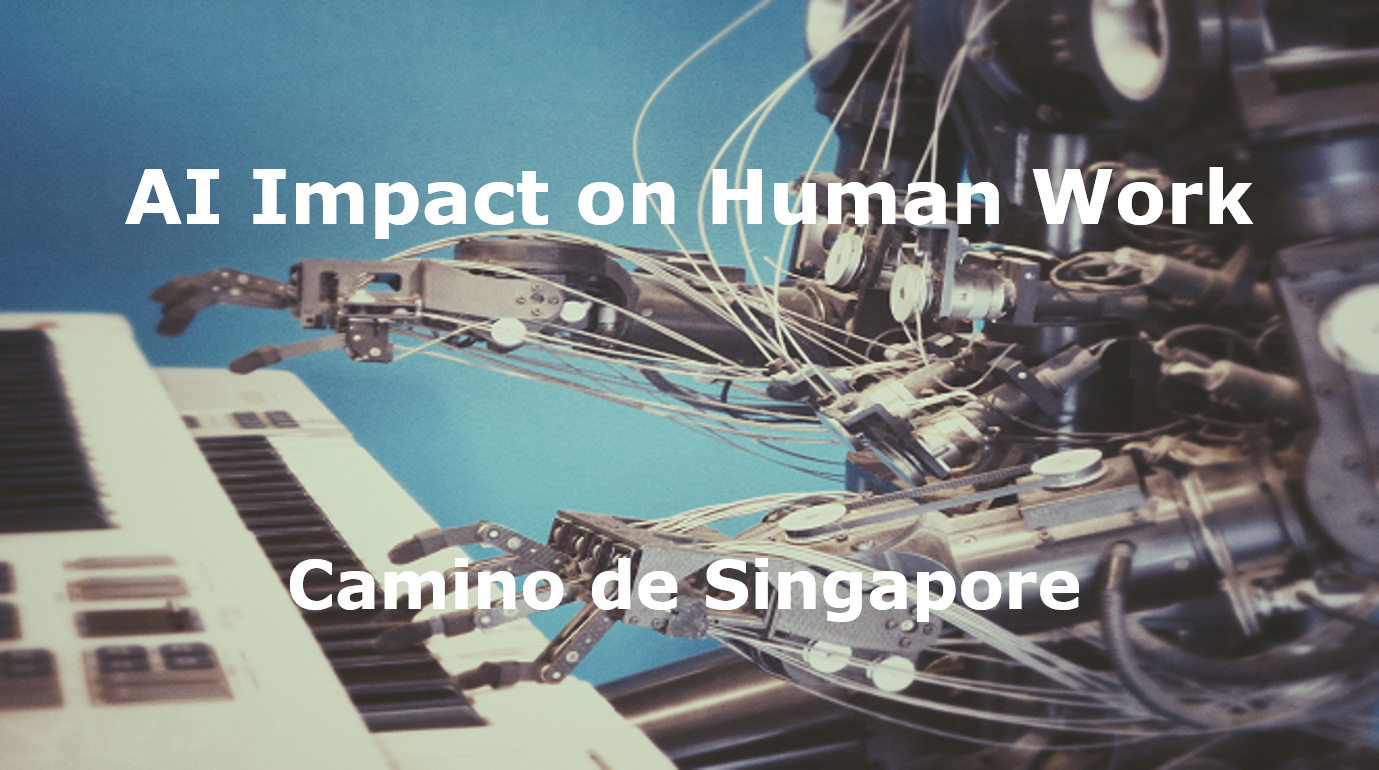No products in the cart.

Chat services powered by the latest “artificial intelligence” (AI) have been hitting the news headlines recently. Many have been impressed, shocked and frightened at the same time by the ability of these AI-powered machines in answering queries or performing written tasks that surpasses most human writers. As a result, more money is being poured into development of AI-powered tools by investors and institutions who believe they can greatly profit from them in the future. Furthermore, it has intensified competition between technology companies on who can develop the best AI technology. For example, Microsoft sees AI-powered search as an opportunity to topple Google as the most popular search engine, while Google sees this as an existential threat to their core business. Thus, we can expect, in the coming months and years, more powerful AI tools to flood the news and the market.
Now, whenever new powerful technologies enter mainstream use, their inventors and the companies that back them often do not pay sufficient attention on the ethics of their use and their impact on human beings. AI-powered chat robots are already being criticised for the lack of accuracy compared to human experts, potential for disinformation campaigns and exhibition of biases towards minorities. Another major concern that has been widely discussed, including in the Parliament recently, is the impact on jobs. Businesses may be excited at the ability of AI-powered tools to replace human workers so as to save costs and provide superior services. However, if the wave of new AI products causes massive unemployment, we will end up losing out instead of benefiting from such novel technologies.
If we as the Church are the “light of the world” and the “salt of the earth”, then we have the responsibility to draw from our Catholic social teaching tradition and participate in the public discourse on AI technologies and their applications. We should also be part of any kind of community engagement that can shape future policies on how AI tools should be regulated.
One important teaching we have inherited from this tradition, which was articulated by Pope St John Paul II in Laborem exercens, is that work is good for the human person because it expresses and increases human dignity. God gave the first man the garden to work. The work on cultivating the land became, in a sense, a divine calling and a participation in God’s work in creation. As a result, work, despite its toils, is a way for a person to achieve fulfilment as a human being created in the image of God. (It should be noted that the Church’s definition of work is more than a job. For instance, caregivers and homemakers do important work for their family members even if their work is not typically considered to be an income-generating work.)
From the perspective of this social teaching tradition, it is profoundly immoral to see human workers as mere tools to generate profits for their employers. Instead, employers have a responsibility to shape the working environment so that workers can grow and be fulfilled by their work. This is the implication of the teaching that work is for the worker and not the other way around. The children of God cannot become tools for profit generation. In adopting this mindset, we must be firm on the position that AI tools cannot be used to replace human workers just so that the employer can save wage costs and make more money.
Nevertheless, we must not be afraid of all technological developments. We should appreciate God-given human ingenuity that can innovate and create new tools to benefit the human family and all of creation. AI tools can be developed in such a way so as to enrich the work environment of the human worker provided that sufficient training is given. They can in fact do tedious or even dangerous work that up to now must be done by humans such as manual labour in mining tunnels where John Paul II used to work himself. Furthermore, AI tools can also assist the human worker in providing superior products or services to their customers.
All the above is possible if creators and users of AI tools constantly keep the dignity of the human worker in mind. But in order for this to happen, government policies, regulations and changing mindset on human work need to move the sector in the direction of the common good. We, the Church, are obliged as the body of Christ on earth to participate in the work of making that happen.
Related News
- Tech companies to highlight AI in earnings; investors focus on profits (Channel NewsAsia, 24 April 2023)
- Mariam Jaafar on buckling up for an ‘AI-ready’ Singapore (Channel NewsAsia, 21 April 2023)
- Want ChatGPT to do your homework? Learn how to use it first (Channel NewsAsia, 4 April 2023)
- Who should we hold responsible when AI goes wrong? (Channel NewsAsia, 31 January 2023)
Erwin Susanto is a staff member of Caritas Singapore. He enjoys arcane discourses on Old Testament/Hebrew Bible in the context of the Ancient Near East. He also enjoys thinking about all kinds of contemporary issues and sometimes wonders if punditry is fun.
